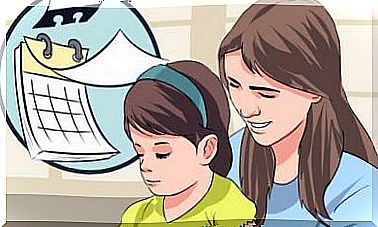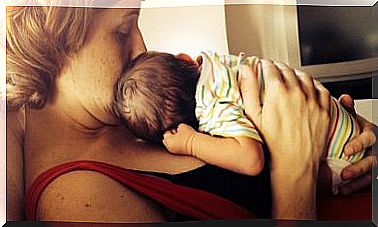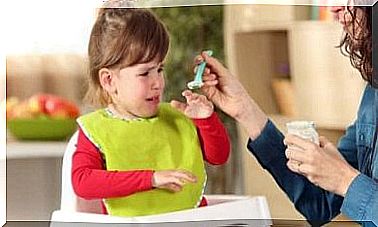Why Should We Never Force Children To Eat?

Long ago, and even today, parents often forced their children to finish their plates completely. But is it right to demand this? Should you force your kids to eat?
Experts agree that children should not be forced to eat. Like every human being , children also realize when to eat and when to stop.
However, if we constantly pressure them to eat their entire plate, they won’t pay attention to their bodies. They only think about what we impose on them.
Julio Basulto, dietitian, nutritionist and author of several books, has this to say: “We shouldn’t force our children to eat something they don’t want, eat more than they want, or eat faster than they can.” Forcing absolutely does not lead to good results.
In addition, it is important that we take into account that children are children. They are smaller than us and therefore their diet will be different from ours. Especially if they are younger.
Their stomach is smaller than ours. For that reason, we can’t expect their portions to be the same size as ours.

What happens if we force children to eat?
We believe we are doing something good for our child if we insist that they eat something they don’t like or that they finish their plate. But that’s not true.
Because if we force children to eat, it can lead to them rejecting the food.
On the other hand, if the child continues to eat when he actually has enough, he will eat more food than he needs. And when a child eats more than he needs, there is a risk that he will become overweight.
What are the typical behaviors we should avoid?
- Threaten to deprive your child of an activity he enjoys.
- Making him feel bad or naughty.
- Telling lies.
- Putting pressure on your child.
- Scare him.
- Psychologically abusing him.
What can we do to get them to eat?
Give your child time
Everyone eats in their own way and at their own pace. You, the parents, probably each have your own pace. It is important to understand this and not put pressure on the child. Respecting his time for each meal will help him feel calmer and more comfortable while eating.
Offer new foods little by little
Children have to get used to new foods. If we put a lot of new ingredients in the same meal, it will be more difficult for them to get used to the new food. It will be easier for them if we introduce new dishes little by little, without forcing them to eat something if they don’t want it the first time.
Eating with the rest of the family
It’s important that they get used to eating when others do too. Placing them at the table during the meal improves their relationship with their environment and with food. Remember, as they grow up, they want to feel included and a part of everything you do.
Set a good example
If you want your child to eat something, you have to eat it yourself. If you want to give him something you don’t want to eat yourself, you’re making it very difficult for him! Show your child that what’s on his plate is delicious and that you like it too.
What should we avoid?
- Try to avoid a disturbing or worried face when you give them something new to eat: it should seem natural. If not, the child will notice that something is not right and be wary. This increases the chance that he will refuse food.
- Avoid sweets and other snacks before meals: if we allow him to eat snacks before lunch or dinner, the child will have less appetite. If you offer something that doesn’t immediately excite him, it’s easier to reject it. After all, he is not really hungry because he has eaten something before.
- Avoid distractions: Mealtime should be exclusively for food. It is best to avoid television and all kinds of toys. This way, kids will only focus on the food.

Remember that everyone needs their time. Respecting your child’s time and not forcing your child to eat will therefore help build a better relationship. It will also help him develop healthy eating habits.









